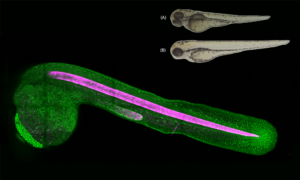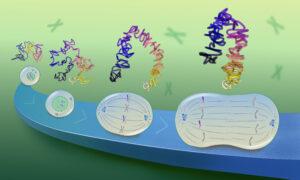
BioModels performance boost, new model formats
Public repository upgraded to handle more types of mathematical models and offer improved performance and search

EMBL-EBI’s BioModels Database, the public repository for mathematical models of biological and biomedical processes, has launched a brand new infrastructure. The new BioModels accommodates a wider range of mathematical models in diverse modelling formats, and offers improved search functions and performance.
BioModels is an open-access database that allows researchers to share their mathematical models with the wider community. Researchers can access models created by others and published in scientific literature, and reuse them.
More formats, more flexibility
Scientists have been producing an ever-increasing number and range of approaches to mathematical modelling over the past decade. Because more people are generating different types of physiologically (and pharmaceutically) relevant models, public data repositories are struggling to cope.
Responding to this need, BioModels now supports models built using a wider variety of modelling software and formats and standards, including Python, Mathematica, Matlab SimBiology, etc., as well as SBML and CellML.
Easy to find
The upgraded BioModels search system combines two powerful engines: the Omics Discovery Index and the ‘biologically aware’ EBI Search. This enables users to search by author name, publication, year, model name or BioModel identifier, as well as many other metadata parameters.
Collaborative curation
Reproducibility of and easy access to data resources are top concerns in the scientific community. To address these needs, the BioModels team curates and annotates models, often with the help of the authors. The new BioModels offers tools for authors and curators to work collaboratively, speeding up the curation process considerably.
BioModels links its data to other public data resources, such the Ensembl genome explorer and the ChEMBL database of bioactive entities. Its data is also linked to controlled vocabularies and ontologies. This places each model in the wider biological context, saving researchers time and effort.
About BioModels
BioModels was initially launched in 2005 in response to the needs of the systems biology community. It is a resource that makes it possible for researchers to exchange, reuse and repurpose mathematical models. Currently, BioModels hosts over 8400 models from scientific literature, both submitted directly by authors and entered by BioModels curators. One notable submission is of 6750 patient-specific, genome-scale, metabolic models that were derived from tumour samples from individual patients.
BioModels also hosts over 140,000 models automatically generated from biological pathways produced by the Path2Models project.
All hosted models are freely available to access and download through the BioModels website.
This post was originally published on EMBL-EBI News.


